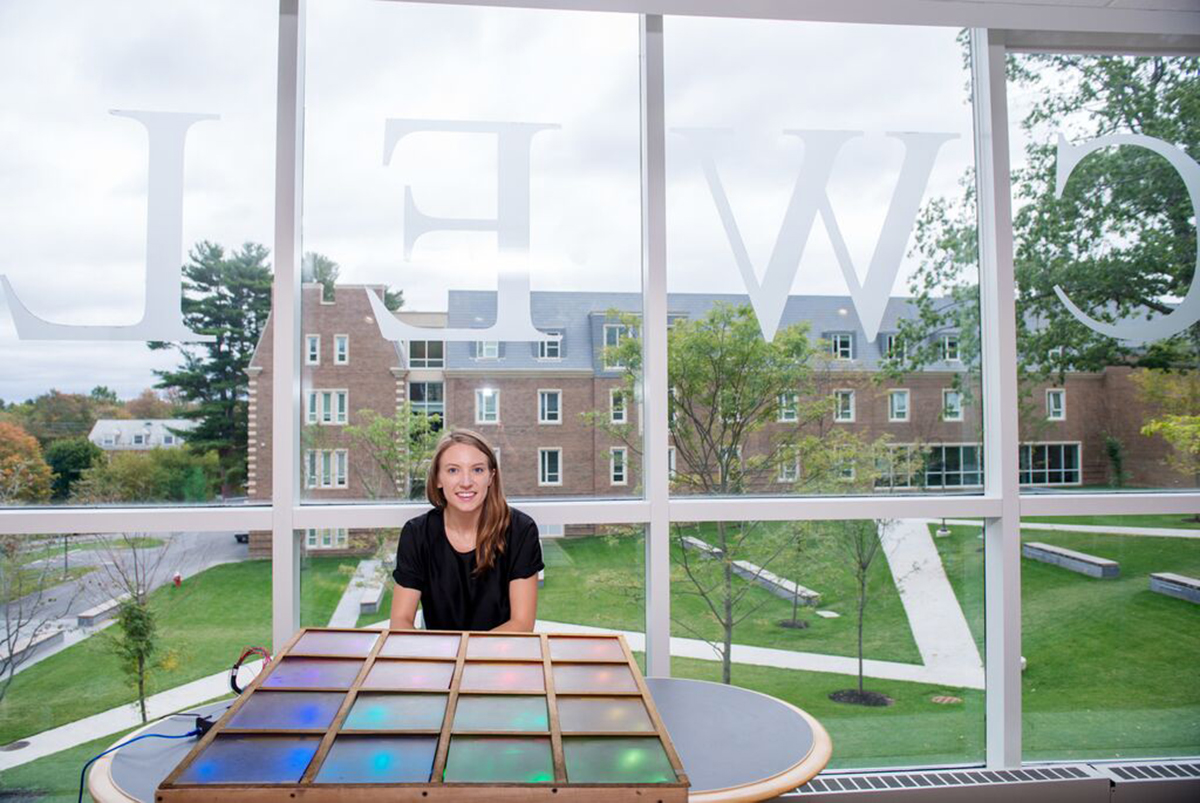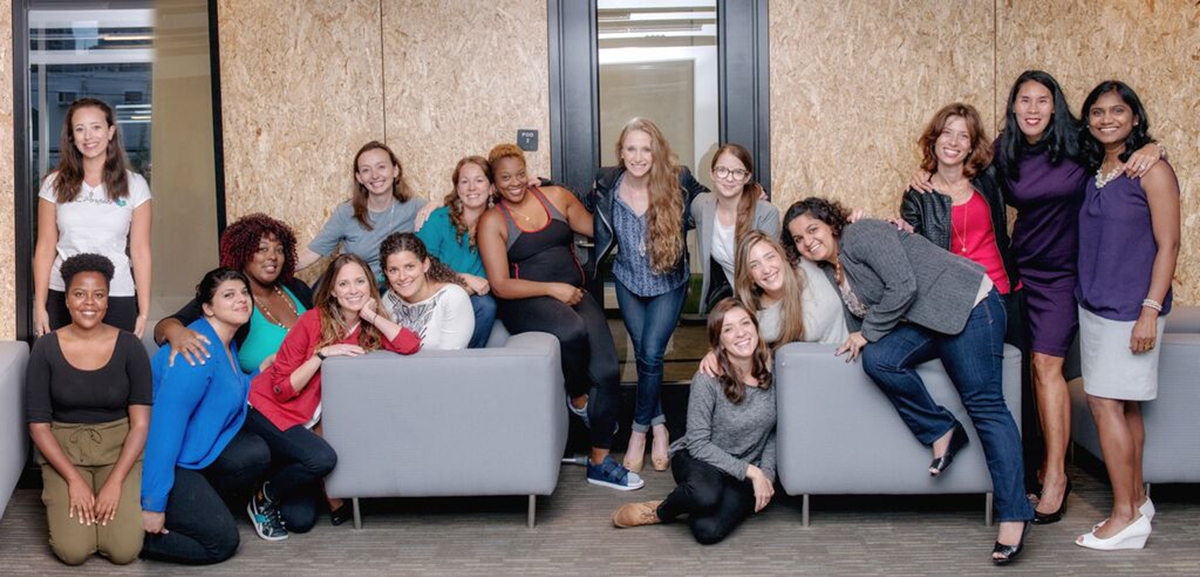How Babson Is Fostering the Next Generation of Women Entrepreneurs

Bryanne Leeming of JumpSmart | Image Provided
Only 2.7 percent of companies that received venture capital funding between 2011 and 2013 had a female CEO, according to the 2014 Diana Report, released by Babson College.
John Burns, chief investment officer at Boston brand capital firm Breakaway, heard that statistic for the first time sitting on a panel dedicated to discussing the report’s findings. Mulling it over, he realized the percentage “wasn’t too far off” from the number of women he had seen walk into Breakaway.
“Before [the panel], I had not really spent a lot of time considering the issue,” Burns says. “But hearing the findings, I thought, ‘This is not only a real issue, this is something I might actually be able to do something about.’ There aren’t enough women coming in the door looking for money.”
In an effort to change that, Babson’s Center for Women’s Entrepreneurial Leadership (CWEL) partnered with Breakaway to launch the Babson Breakaway Challenge, a competition and mentorship program focused on promoting gender parity and creating opportunities for female entrepreneurs and aspiring venture capitalists.
The Challenge is accepting applications now through January 5, 2016. Fifteen semifinalists will undergo a day of workshops in early February before pitching their business plan to a panel of judges. The judges will select six finalists for a six-week, one-on-one mentoring program that leads up to the final pitch on March 30, 2016. Up for grabs is $250,000, which is “the largest amount of funding awarded in a business competition for women.”
But for six other women, an internship at Breakaway is on the line. In addition to the business competition, the Challenge is looking for six venture capital apprentices to work alongside the finalists to help them refine their pitch. At the end, the highest-performing apprentice will receive an internship.
“[The Challenge] is getting at both sides of the joint problem,” says Susan Duffy, executive director of CWEL and cofounder of Babson’s Women Innovating Now (WIN) Lab. “We’re attacking the problem that women need more venture capital, and that we need more women in venture capital. It’s one of a kind. It’s never been done.”
Burns received his MBA from Babson, but notes his affiliation with the school didn’t factor into Breakaway’s partnership decision. Rather, he’s been impressed with the entrepreneurs who have graduated from Babson, citing IdeaPaint’s Jeff Avallon from Breakaway’s portfolio, and the overall merits of the college.

WIN Lab Entrepreneurs | Image Provided
“It’s a high class institution,” Burns says. “What they’re doing for women, it’s leaps and bounds over what other schools provide.”
The Princeton Review supports his statement, recently ranking Babson’s graduate program fifth for “Greatest Opportunity for Women.”
CWEL was founded in 2000 with the goal of educating and empowering female leaders “to create economic and social value for themselves, their organizations, and society.” To help foster that mission, in 2013 CWEL launched the Women Innovating Now (WIN) Lab, an eight-month venture accelerator designed to support female entrepreneurs. Founders are paired with a “compatibility-matched” coach, provided workspace in Boston’s District Hall, and granted access to networking and mentorship events.
Babson also collaborates with the City of Boston, particularly the Office of Business Development and Office of Women’s Advancement. Of the 21 women entrepreneurs accepted into the WIN Lab’s third cohort in late September, six have been named fellows for “Women on Main,” an initiative developed to connect female business owners throughout Boston.
“We open up to a variety of companies,” Duffy says. “Two of our most successful companies from last year were a drone school and a beer pub. It’s so much beyond pure tech plays and apps.”
This year’s cohort features founders developing everything from functional and fashionable medical dressings for chronic illness patients to middle school-age programmable maps that combine engineering concepts and coding with physical activity.
“There’s this inextricable link between community and content,” Duffy says. “We are building a community of entrepreneurs who support each other. On the other side is really rigorous content—they need a lot of skills, competencies, and connections.”
The formula is working: The undergraduate student body has risen to 54 percent women; the three finalists in the graduate student category of the 2015 Babson B.E.T.A. Challenge were women; and of the 15 startups accepted into the Summer Venture Program, nine were female-led. Prior, there had never been more than two female finalists, according to Duffy.
“We’re doing what we’re supposed to be doing for this institution,” Duffy says. “It’s making sure that everyone has the chance to fulfill their potential through impact.”
Babson will continue to work even harder toward that mission—campus- and city-wide.
“We’re really serious about this. We’re excited,” Burns says about the Babson Breakaway Challenge. “The bigger win here is going to be making this a lasting program that people are going to look to years and years from now.”


